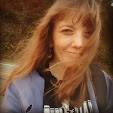I had a dream this afternoon while a soft, quick summer rain fell on the forest outside. In the dream I had moved to northern Arizona and was living in the desert, teaching on the Hopi reservation, something I dreamt of and considered doing for years. The dream prompted me to reread something I wrote many years ago about my time in Hopiland in 2001. Here it is.

In my dreams I revisit the sunbaked plaza often. The slant of the wooden ladder, the calm eyes of my traveling companion, the corncob-littered rooftop, and the faint gauzy drift of cattail fuzz through the desert air dance in a kaleidoscopic swirl of dizzying remembrance. What am I supposed to have taken away from Hotevilla? The slow, rhythmic chanting of the katsinas in their sacred masks and the fierce continuity of the desert itself gave me the strength to leave behind so many things. As Charlotte Joko Beck has written, "Practice has to be a process of endless disappointment. We have to see that everything we demand (and even get) eventually disappoints us. This discovery is our teacher."
My traveling companion was my teacher for those five days in the desert last summer, as were the Hopi, the dove that accompanied us down a bad dirt road to an abandoned village we were not supposed to visit, the ancient petroglyphs of Betatakin, and the solemn trickster jackrabbit at Wupatki. I had been reading Edward Abbey's sternly loving memoir of his time in the Utah canyonlands,
Desert Solitaire; in the book Abbey tells of hurling a stone at the head of a lone jackrabbit just to prove to himself that he can take the rabbit out. To his surprise, the rock lays the rabbit right out and kills it instantaneously. A little befuddled but ultimately unrepentant, Abbey examines his work and moves on. He ponders what he did and searches his conscience for any sign of grief or remorse; there is none. Instead, he feels like he has moved more deeply into the landscape, has become for a time just another skillful predator in the wild. I thought about that passage as I recalled the jackrabbit at Wupatki. I had sat in the desert sand amid juniper, sage, and tamarack and let the auburn air surround the hunched gray form of rabbit as the moon lifted her brash and womanly visage up in that immense and lovely arc of Arizona sky above us. Though I was not offended by Abbey's act, and it even made a kind of quixotic sense to me, I felt a visitation of a different sort settle in there beside the ancient rocks and ruins. I imagined the rabbit with its wide eyes and tall ears to be a beneficent commentary upon the quality of stillness possible in the world. The rabbit seemed to embody the paradoxical laughter of a kindly animal spirit in the night, a passage into unity with something huge and varied and singular, a flicker of connection with everyone I ever knew and loved. I saw in the rabbit and its undaunted and continuous presence beside me the living ghosts of all my old lovers, friends, heroes, and teachers. As the evening deepened and my traveling companion approached me from his place by the ballground, the moments shared with the jackrabbit shifted from an almost palpable lambent stillness into a distinct movement back into the world of road maps, airplanes, pickup trucks, and raspberry granola bars. I smiled at my friend and we walked up out of that place of haunted ceremony back into our teachers' worlds.
Away from the desert now, I like to think I can see the ghost of Edward Abbey in the deep crook of a tall tree by a steep mountain path, or moving fast in water down the side of Tallulah Gorge. This spirit is my watchdog against complacency, my trickster playmate who keeps me from taking the world of strip malls, teacher meetings, curriculum realignments, and cafeteria food too seriously. He reminds me to move back into the kaleidoscope of wildness and grace I witnessed at the dance at Hotevilla, to recall that the sacred is real and that the real is everywhere. He lets me laugh at myself and he recently gave me a vivid dream of Georgia O'Keeffe gathering bones from a dumpster in the night. Even the most savage and unpromising of landscapes hold forth beauty, that dream reminded me, and when I woke my cat was curled close against me, his yellow eyes and silver fur weirdly reminiscent of other eyes and fur in the morning grayness. I tried for a moment to move back into the dream, wanting to know what O'Keeffe would do with those bones---would she paint them?---but the sun was coming up behind Sharptop and I decided instead to go outside and see it rise. The shapes of birds and conifers moved into slow distinctness in the gradual orange light and the dawn chorus replaced the silence of my sleep as the day began. I didn't have to look hard to see the ghosts of Abbey and O'Keeffe there, too.

©Laura Sorrells 2001
all rights reserved













